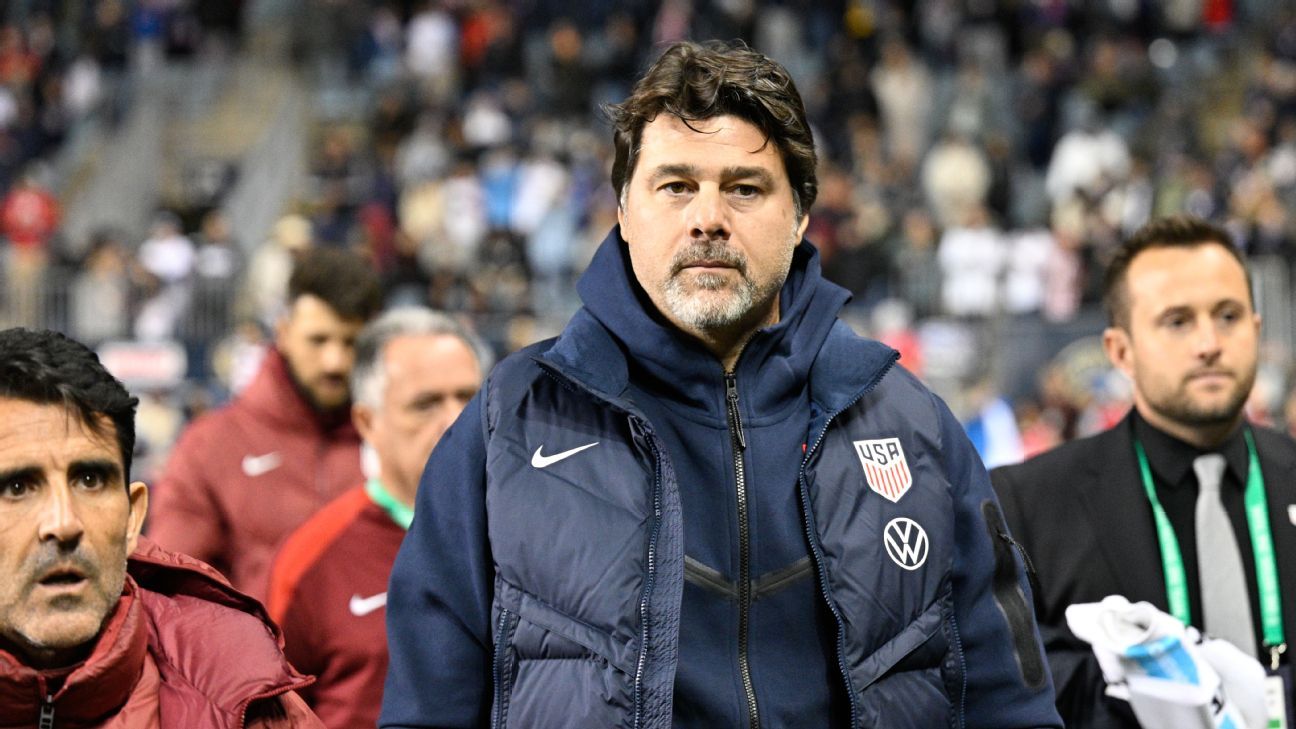Head coach Mauricio Pochettino of the US men’s national team emphasizes the need for his players to have a “big thinking” mindset as they strive for a World Cup championship in 2026.
The USMNT hasn’t reached the World Cup quarterfinals since their best performance in 2002, but Pochettino believes they should set their sights on winning the tournament, which is set to be jointly hosted by the United States, Canada, and Mexico next year.
He pointed to Morocco’s unexpected journey to the semi-finals in the 2022 World Cup as an encouraging example for his team.
– Pulisic sidelined for match against Milan due to a new injury
– USMNT 2026 World Cup Big Board 3.0
– Predicting the USMNT’s starting lineup for the World Cup
“Winning is what truly matters. If you’re not victorious, what’s the point? Finishing second means you’re often forgotten,” Pochettino told Futbol de Primera’s Andres Cantor in a recently published interview.
“We aim for the championship, yet sometimes we settle for semi-finals or quarter-finals, citing various reasons for not winning. We must take responsibility, much like Morocco did in Qatar, where they embraced a winning mindset,” he added.
“Spain, which Morocco defeated in the quarter-finals, eliminated many strong teams. This is crucial, particularly as we host the World Cup. It’s vital to maintain ambitious aspirations; a successful tournament can help football gain a more permanent foothold in this country.”
Since taking charge after the USMNT’s disappointing Copa America performance last year, Pochettino has stressed the importance of a strong mentality and a competitive culture within the team, continually seeking improvement on and off the field.
“The issues started before I came,” he remarked. “But a new captain must navigate through challenges. A ship in a storm must adjust its course, and it’s the leader’s responsibility to guide it through rough waters.”
Pochettino flagged the 2-1 defeat to Mexico in the 2025 Gold Cup on July 6 as a pivotal moment, asserting that his team has since discovered how to compete effectively.
“Given our recent performances, especially post-Gold Cup, I believe we’ve found a competitive edge and raised our standards,” he stated.
“We’ve discussed the strategies we’re implementing into the team, which contribute to our growth. Even though these matches act as opportunities for players to secure spots on the national team or for the World Cup, there is always a risk that outcomes may not be as expected.”
Since the loss to Mexico, the USMNT boasts a record of 4 wins, 1 loss, and 1 draw, including a surprising 5-1 victory against Uruguay, marked by goals from Diego Luna, Tanner Tessman, Alex Freeman, and Sebastian Berhalter.
However, Pochettino’s tenure hasn’t been free from criticism.
“There are coaches in the U.S. who criticize me without reason. I wouldn’t disrespect another coach,” Pochettino expressed. “I understand how tough coaching can be.”
“Criticism often comes from those unacquainted with soccer culture. Losing two matches against teams like Panama and Canada is part of learning—some may see this as exploiting American culture without grasping the essence of the sport.”
ESPN noted that the USMNT is scheduled to face European teams Portugal and Belgium in March, marking Pochettino’s last matches before finalizing the World Cup roster.
The significance of this topic resonates deeply with soccer fans, highlighting a moment of critical evolution for the USMNT leading into the next World Cup. It represents not just a quest for glory but also the broader growth and development of soccer in the United States, which could inspire a new generation of players and fans.



